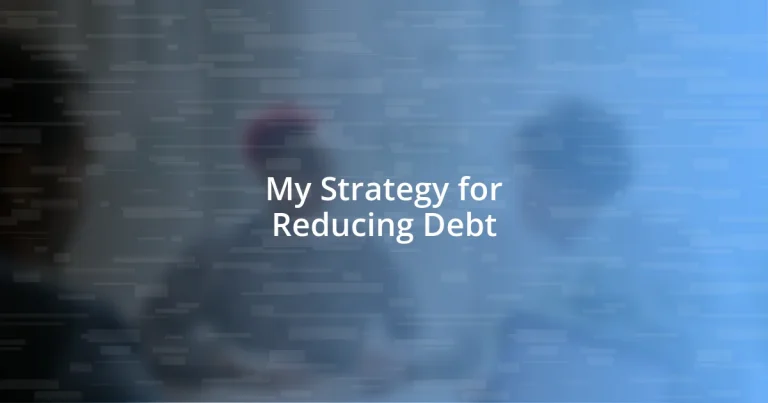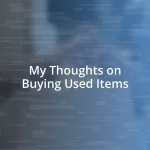Key takeaways:
- Categorizing debts into ‘good’ and ‘bad’ helps in making informed borrowing decisions and managing financial stress.
- Setting clear, specific financial goals and revisiting them regularly aids in creating a manageable debt repayment strategy.
- Maintaining financial discipline and tracking spending fosters a sense of control and empowers long-term debt reduction efforts.
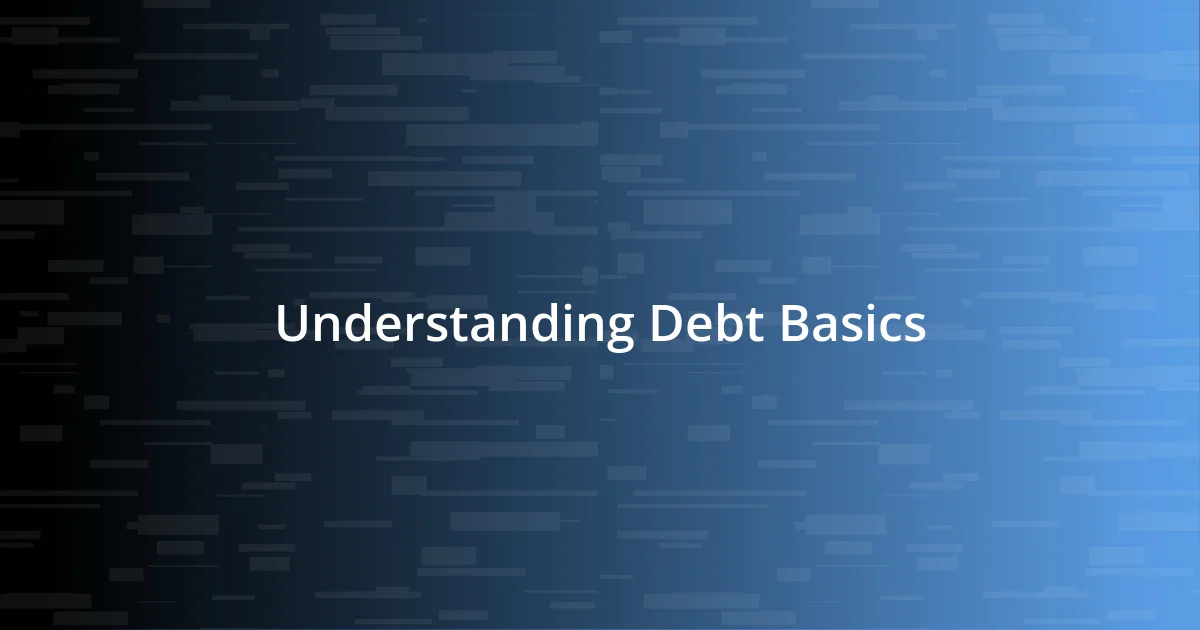
Understanding Debt Basics
When I first started to grasp the concept of debt, it felt overwhelming. I realized that debt isn’t inherently bad; it’s the way we manage it that leads to stress. Have you ever noticed how easy it is to accumulate debt without even realizing it? A small purchase here and there can snowball into a significant amount.
Understanding the different types of debt can be a game-changer. I remember when I categorized my debts into ‘good’ and ‘bad.’ Good debt, like a mortgage, can contribute to your financial growth, while bad debt, such as high-interest credit cards, can trap you in a cycle of payments. Reflecting on these distinctions helped me make smarter decisions about borrowing.
One crucial aspect of debt is how it impacts your mental well-being. I felt a weight lift when I started tracking my payments and progress. It made me wonder, how would your life shift if you took control of your financial situation? Understanding the emotional side of debt can be just as important as the numbers on your statements.
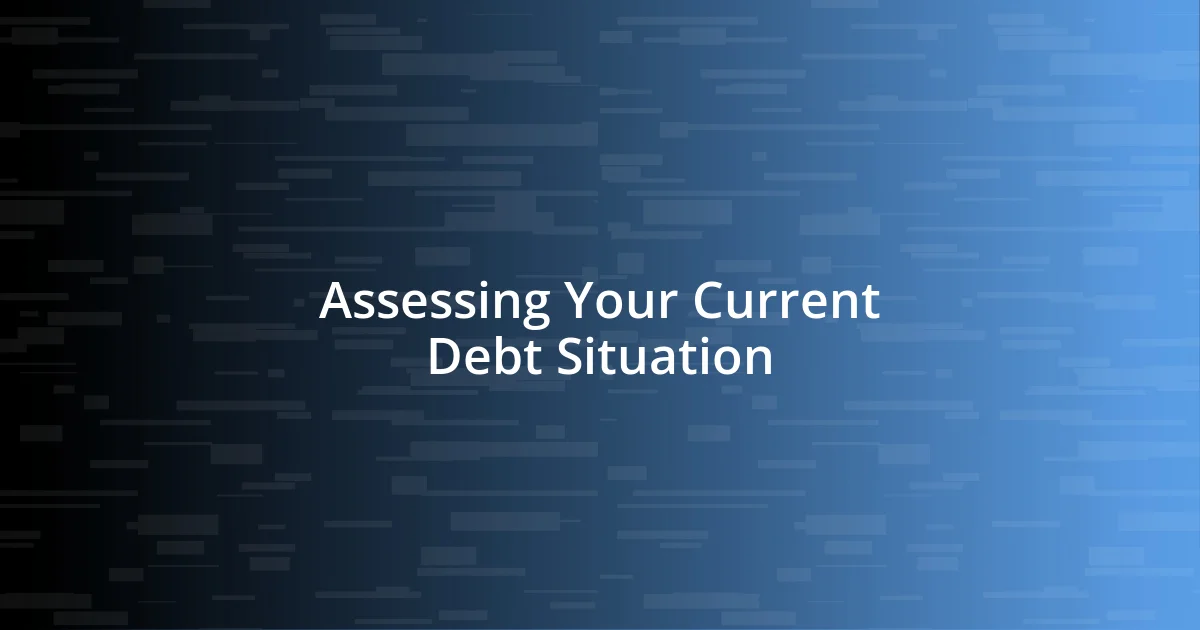
Assessing Your Current Debt Situation
Assessing your current debt situation is like taking stock of the baggage you’re carrying. I remember sitting down with my statements, and it felt like I was staring at a monster I had created. By facing those numbers head-on, I was able to recognize how each debt affected my to-do list—and my peace of mind.
- Write down all your debts, including amounts and interest rates.
- Categorize them as secured (like a car loan) or unsecured (like credit cards).
- Consider whether they fall into good or bad debt, as that distinction can guide your strategy.
- Reflect on how each debt makes you feel—does it stress you out or motivate you to become more financially savvy?
Once I organized everything, I could see a clearer picture of what I was up against. Not only did it bring clarity, but it also gave me a sense of control. Seeing everything laid out helped me realize that knowledge is power in managing debt.
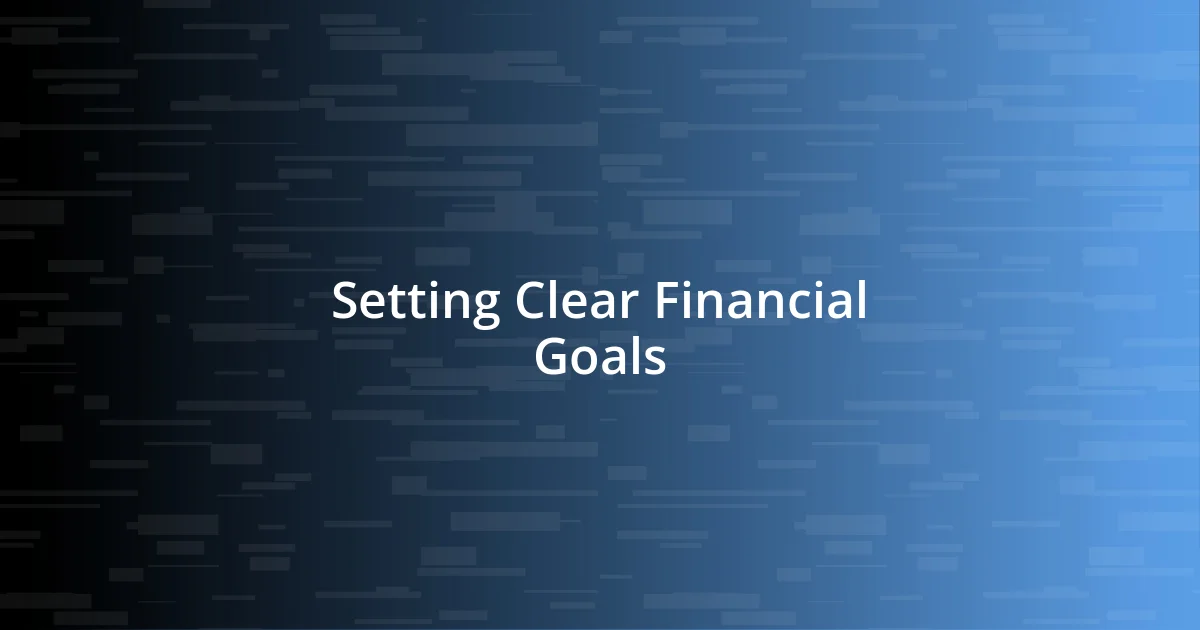
Setting Clear Financial Goals
Setting clear financial goals is absolutely essential in reducing debt. I remember when I first set my own goals; it felt like shining a flashlight in a dark room. Having specific, measurable goals gave me direction and a clearer path forward. Did you ever notice how goals can transform chaos into a plan? They help you prioritize what needs immediate attention versus what can wait.
In my experience, breaking down my financial goals into smaller, actionable steps was a game-changer. Instead of just saying, “I want to pay off my debt,” I targeted that goal with specific milestones. For instance, I aimed to pay off one credit card by a particular month. This approach not only made the daunting task of debt repayment seem manageable, but also gave me celebratory moments to look forward to along the way.
I also learned that revisiting my goals regularly was crucial. Initially, I was shy about modifying them but found it necessary as my financial situation evolved. Life can throw curveballs, and flexibility became part of my strategy; I would ask myself, “Are my goals still realistic?” Adjusting my plans proved to be just as empowering as setting them in the first place.
| Smart Goals | Vague Goals |
|---|---|
| Pay off $500 of credit card debt in two months | Pay off credit card debt |
| Save $100 each month for an emergency fund | Start saving money |
| Track expenses weekly | Be better with money |
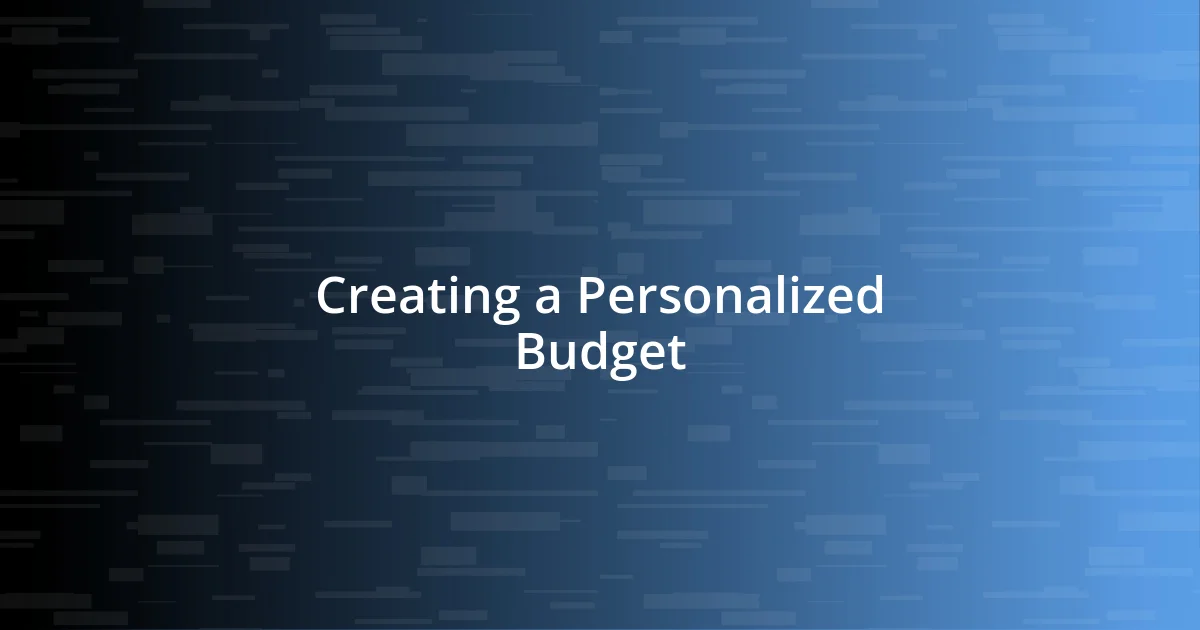
Creating a Personalized Budget
Creating a personalized budget is like designing a roadmap for your financial journey. I recall when I created my first budget; I used a simple spreadsheet to track my income and expenses. This allowed me to see where my money was going, and surprisingly, I discovered areas where I could cut back—like those daily coffee runs that added up more than I realized!
It’s important to categorize your expenses into fixed (rent, utilities) and variable (entertainment, groceries) sections. In my experience, this helped me identify non-essentials that could be trimmed. Have you ever looked at your spending closely and realized how small changes can lead to significant savings? I remember feeling a weight lifted off my shoulders when I adjusted my budget to prioritize debt repayment without sacrificing my lifestyle entirely.
Setting realistic limits was another game-changer for me. As I navigated my personalized budget, I made sure to include some fun money, so I wouldn’t feel deprived. I learned that budgeting isn’t about restriction; it’s a tool to empower your financial decisions. How would it feel to know you’re actively working toward a debt-free life while still enjoying the little things? Balancing your budget with enjoyable expenses makes the journey much more sustainable.
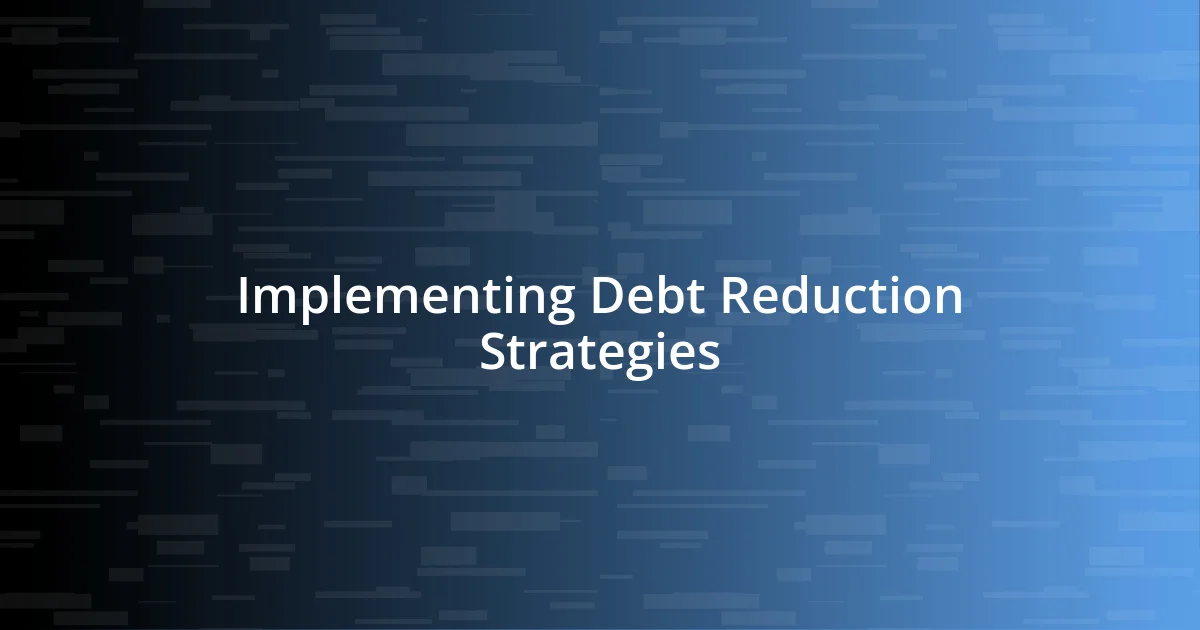
Implementing Debt Reduction Strategies
Implementing debt reduction strategies requires a hands-on approach, and one effective method that worked wonders for me was the snowball method. I remember the excitement I felt when I focused on paying off my smallest debt first. It brought quick wins that fueled my motivation. Have you ever noticed how success in one area can inspire you to tackle even bigger challenges? Once I cleared that first debt, I felt invigorated and more determined to keep going.
Another strategy I embraced was automating my payments. It sounds simple, but setting up automatic transfers to pay down my debts ensured I never missed a due date. The relief of knowing I was actively working toward reducing my debt without even thinking about it was substantial. I often ask myself, “How can I make my financial journey easier?” Automating payments was my answer, allowing me to focus my mental energy on other priorities without compromising my progress.
Lastly, I found that seeking support from friends and family made a considerable difference. Talking openly about my debt struggles created a support network that held me accountable. I remember sharing my goals with a close friend who then checked in with me regularly, which kept me on my toes. Have you considered sharing your journey with someone? This kind of openness not only serves as motivation but can also create lasting bonds through shared experiences.
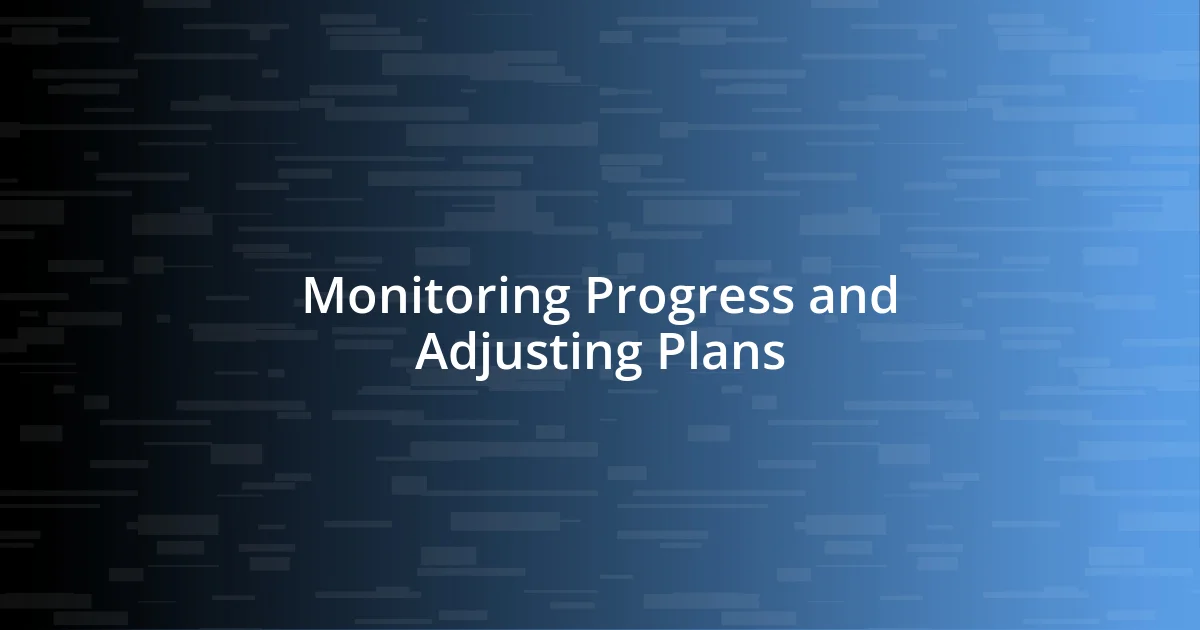
Monitoring Progress and Adjusting Plans
Monitoring my progress while reducing debt has been a crucial part of my journey. I remember every month, I set aside a few hours to review my budget and see how my debt repayment was progressing. It was often a mix of anticipation and anxiety—did I stick to my plan, or had unplanned expenses derailed me? This regular check-in provided a clear picture and kept me focused on my goals.
Adjusting my plans based on what I discovered during these monitoring sessions was just as vital. For instance, there were months when unexpected expenses cropped up, and I’d need to adjust my payment strategy, shifting focus to a slightly larger debt or finding new ways to generate extra income. Isn’t it reassuring to know that you can adapt your approach instead of feeling stuck? Each tweak felt like a new strategy game, allowing me to remain engaged and proactive in my debt repayment journey.
I also found that celebrating small milestones along the way helped immensely. When I paid off a particular debt, I’d treat myself to something small, like a night out with friends or a new book, rather than restricting all joy from the process. How rewarding is that feeling when you know that each celebration is a testament to your hard work? By monitoring my progress and using those insights to adjust my plans, I created a dynamic and satisfying financial journey.
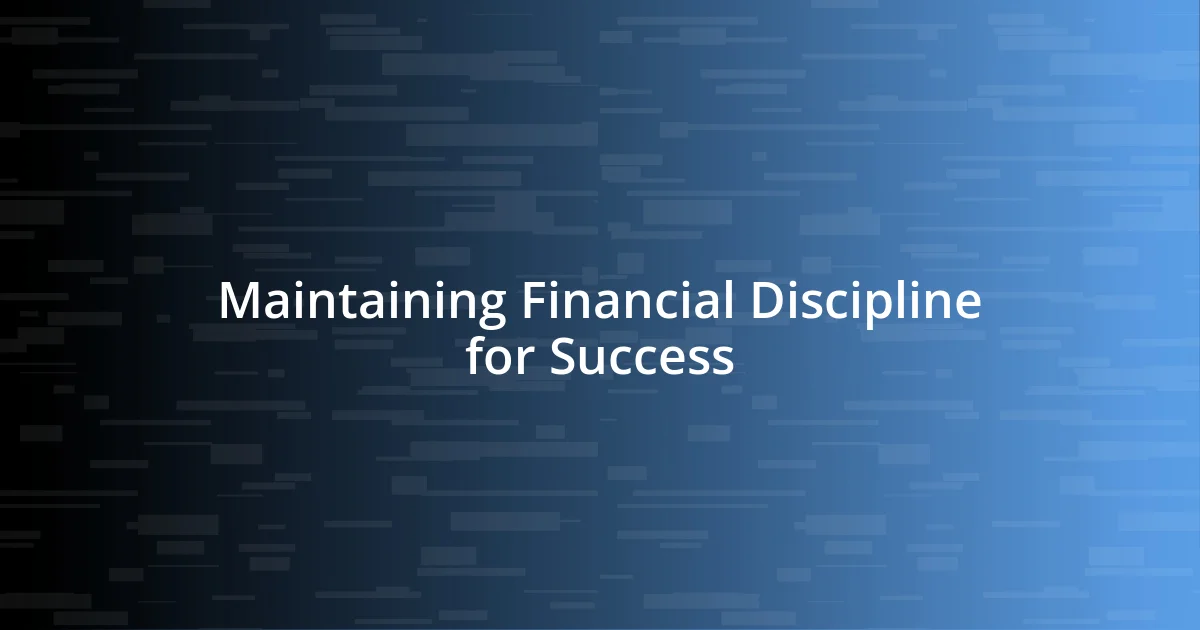
Maintaining Financial Discipline for Success
Maintaining financial discipline is the backbone of any successful debt reduction strategy. I’ll never forget one evening when I nearly splurged on an impulse buy. I paused and wondered, “Is this the path I want to take?” That moment of reflection helped me to recognize the importance of sticking to my budget. Creating a clear financial plan and regularly reminding myself of my end goals kept me from veering off course.
There were days when discipline felt suffocating, like I was denying myself all the fun. I learned to shift my focus, viewing my choices as small sacrifices in exchange for future freedom. Thinking about the sense of relief I’d feel when I finally paid off my debts turned those tough moments into stepping stones rather than barriers. Have you ever experienced that gleeful, almost euphoric feeling when you realize your sacrifices are paying off in the long run? It’s an incredible motivator to stay disciplined.
I also found that tracking my spending in real-time was a game changer. I remember diligently logging my expenses one month and realizing how quickly those little treats added up—my morning coffee runs, and spontaneous restaurant outings were draining my budget more than I expected. It prompted me to make smarter choices, like brewing my coffee at home. Don’t you think that awareness can shift our spending habits? By embracing a more mindful approach to my finances, I gained a sense of control that dramatically improved my ability to maintain discipline in my journey to debt freedom.












